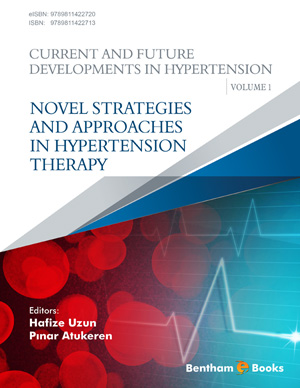Abstract
Hypertension is an insidious and silent disease that is diagnosed relatively late due to its asymptomatic course. It is considered one of the most substantial major risk factor for fatal cardiovascular diseases in entire world especially people who live in developed communities. Epidemiological statistics and public health concerns are resulting in a need for an objective biomarker for this remedy. This necessity is quite crucial for hypertension due to available treatment options, silent clinical outcome progressing and discrepancy between blood pressure measurement methods. The use of biomarkers can contribute not only to pre-diagnosis but also to disease follow-up, treatment success, and prognosis estimation and complication analysis as a whole. As a general concept, biological markers can be located at various sites like systemic circulation, urine, pleural fluid, pericardial fluid, peritoneal cavity, synovial fluid, aqueous humor and even cerebrospinal fluid. Researchers are steadily trying to develop new markers to medical usage or pre-existing ones are being modified for new or enlarged purposes. Analysis methods are also becoming more accessible with less intense labor and less expensive thanks to high technology. Regardless of the tissue from which the biomarker is taken and difficulty in measurement procedures, it will always be a serious target to contribute new, more sensitive and more specific biomarkers on hypertension in clinical biochemistry.
Keywords: Aldosterone, Analysis, Biomarker, Cardiovascular, Decision threshold, Differential diagnosis, Essential hypertension, Fibrinogen, Laboratory, Metanephrine, Microalbumin, Normetanephrine, Oxidized LDL, Prehypertension, Prognosis, Prostocycline, Renin, Screening, Silent clinic, Sphygmomanometer.

















